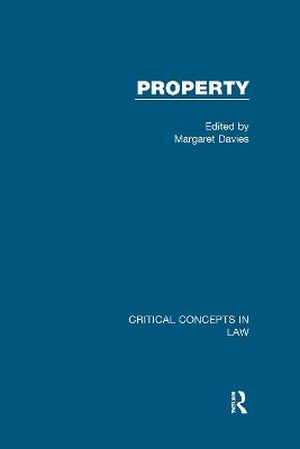
The editor of this new Routledge collection reminds us that ‘property is one of the most unassailable concepts of modern Western legal systems’. The need for individuals and companies to be able to control and manipulate property—including, among other things, rights in land, objects, patents, and copyrights—is foundational not only to modern economies, but also to our very identities, our liberties, and our relationships. Indeed, the secure creation and protection of property is regarded as a fundamental part of most civilized legal systems and it is even regarded by many as a necessary and pre-legal facet of human society itself. But the existence and concept of private property has always been subject to critique, from the Diggers to Marx and anarchist movements, to conscientious objectors to intellectual property, modern land reformers, and campaigners for decolonization. The nature, justification, distribution, forms, and meanings of property continue to be hugely controversial, particularly in a context of diminishing resources, environmental stress, and an expanding class of owners across the world. Recent academic theory emphasizes alternatives to mainstream property thinking, as well as a renewed interest in the commons as an alternative—in some spheres—to endless private commodification.
Property meets the need for an authoritative reference work to help researchers and students navigate and make sense of a huge—and growing—scholarly literature. The collection is made up of four volumes which bring together the best and most influential canonical and trailblazing research.
Fully indexed and with a comprehensive introduction newly written by the editor, which places the collected material in its historical and intellectual context, Property is an essential reference work, destined to be valued by scholars and students as a vital research resource.